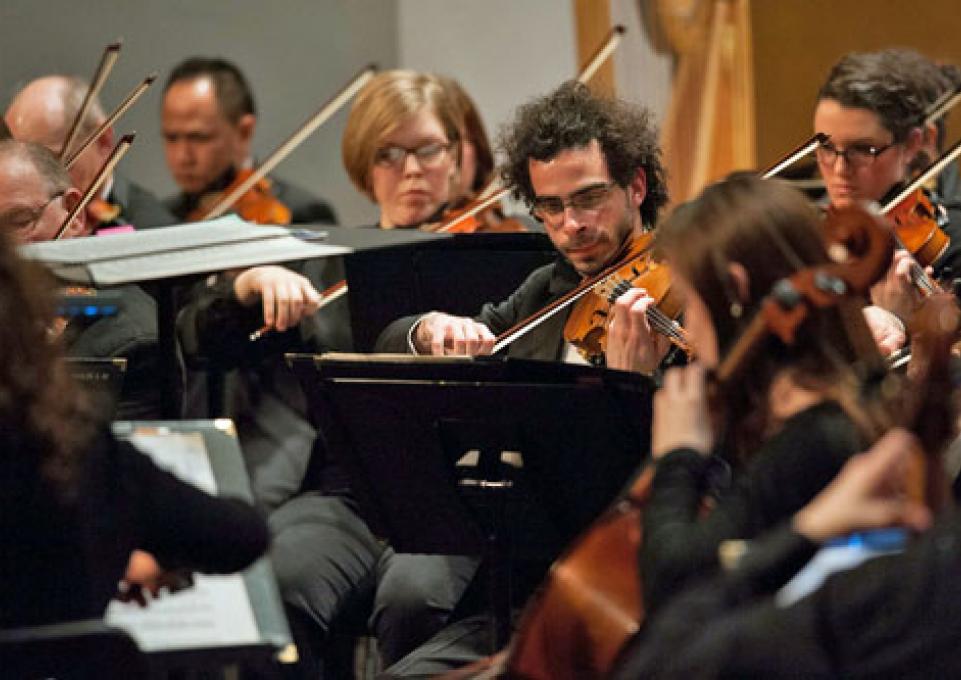
The Buffalo State Philharmonia will present a night of music and narration for its fall concert, Tuesday, November 15, at 7:30 p.m. in the Performing Arts Center at Rockwell Hall.
The program will open with Aaron Copland’s American classic, Lincoln Portrait, in which a narrator will provide a brief glimpse of the fallen U.S. president against a backdrop of powerful music.
“Written in 1942, this piece should be understood as a wartime work whose earnestness distinguishes it from blandly patriotic boilerplate, which just as easily could have won favor in the wake of Pearl Harbor,” said Philharmonia director Daniel Bassin. “Using simple words and a direct, plain-spoken musical rhetoric, Copland succeeded in creating a work whose meaning and depth surely spoke to the widest-possible spectrum of listeners at its time, and has also stood the test of time.”
Copland’s work will be followed by Virgil Thomson’s Suite From The Plow That Broke The Plains. This pieced originally served as the score for Pare Lorentz’s 1936 short documentary on the Dust Bowl, a commission of the U.S. Resettlement Administration.
“Both of these composers were major figures throughout the twentieth century, and these two compositions complement one another musically as well as thematically,” Bassin said. “The Plow That Broke the Plains uses a direct musical vocabulary and uniquely American sounds—jazz and blues elements, hymn tunes, and musical grandeur—we have since come to recognize as cinematic.”
Symphony No. 4 in D-minor (original 1841 version) by Robert Schumann, making its Buffalo premiere with the Philharmonia, constitutes the second half of the program.
“What makes this version of this particular Schumann symphony the ideal conclusion to our program lies in its musical, emotional, and expressive goals. The four movements of this symphony follow one after the other with no pause or real break in the unfolding of the music, an experience not unlike reading a novella in one sitting, expectantly turning page after page, chapter after chapter,” Bassin said. “There’s also a wealth of deep personal connection from this work to Schumann’s own life.”
While there isn’t actual narration in all the pieces, Bassin said he sees a narrative metaphor woven throughout.
“Thomson’s work was composed to add drama to a visual medium and Schumann’s work is uniquely dramatic and narrative the way it’s written for a symphony at the time.”
Formed in fall 2009, the Philharmonia is an auditioned college-community orchestra composed of music majors and non-majors, as well as experienced community and professional musicians.
Tickets are $10 for the general public and available at the Rockwell Hall Box Office, by phone (716) 878-3005 or online. Students with ID are admitted for free.
